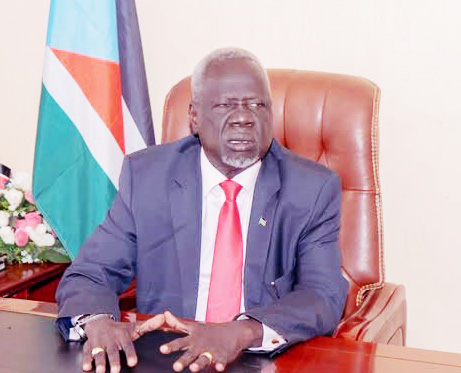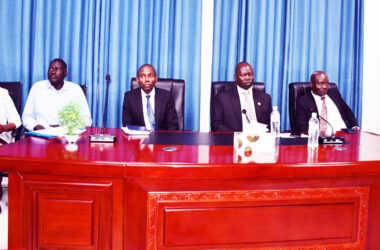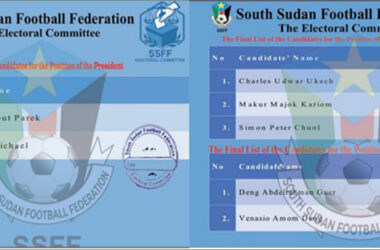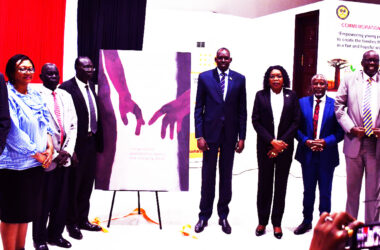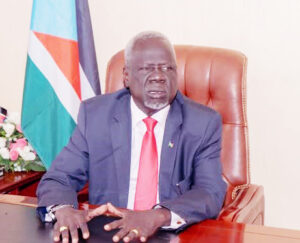
By Alan Clement
Governor of Jonglei State, Dr. Riek Gai Kok, has announced a comprehensive infrastructure development initiative aimed at improving security, economic growth, and humanitarian access across the state.
Speaking to the Media, Dr. Riek confirmed that the workplan has received formal endorsement from the Government of South Sudan and the Ministry of Roads and Bridges.
He praised the approval as a “turning point for Jonglei,” underscoring the state’s renewed focus on connectivity and stability.
“This is more than a plan, it’s a promise fulfilled,” said Governor Riek. “With the support of our national partners and the WFP, we are laying the foundation for a future built on connectivity, opportunity, and peace.”
The initiative was boosted by the backing of the United Nations World Food Programme (WFP), which is incorporating a number of road rehabilitation projects in Jonglei as part of its 2026 expansion strategy.
These projects are designed to restore access to remote communities and improve humanitarian corridors throughout Jonglei.
Key roads targeted for rehabilitation include the Ayod–Pathai–Mwotot–Waat–Walgak route, approximately covering a distance of 95 kilometers. This corridor is expected to significantly increase access to central Jonglei communities and improve delivery of humanitarian aid.
Additionally, a second project will include the Walgak–Kalkuny–Akobo route, which stretches 94 kilometers thus providing a vital connection to the Akobo region, which often suffers isolation during the rainy season.
The third project will target the Mwotot–Lankien–Pading and Pathai–Karam routes, totaling 96 kilometers. These roads will link critical agricultural zones with market centers, boosting economic activity and food security.
The longest proposed route for rehabilitation is the 139-kilometer stretch connecting Poktap, Payuel, Pajut, Fatuei, Yuai, Pieri, and Mwotot. Once completed, it is expected to serve as a strategic supply and mobility corridor for both humanitarian actors and local traders.
“Roads are not just infrastructure, they are lifelines,” said Riek who emphasized that, “They connect families to healthcare, children to schools, and farmers to markets. They bring hope, dignity, and stability.”
Governor Riek concluded by reaffirming his administration’s dedication to inclusive development and collaborative governance, vowing to continue working closely with national and international partners to achieve sustainable peace and progress for Jonglei State.
He highlighted that all the roads will be rehabilitated to a basic standard, ensuring year-round accessibility and minimizing disruptions caused by seasonal flooding and poor terrain
“We are building more than roads, we are building trust, unity, and a future of lasting peace,” he said.
Road network remain one of the major problem across South Sudan despites government promise to connect the whole country.

